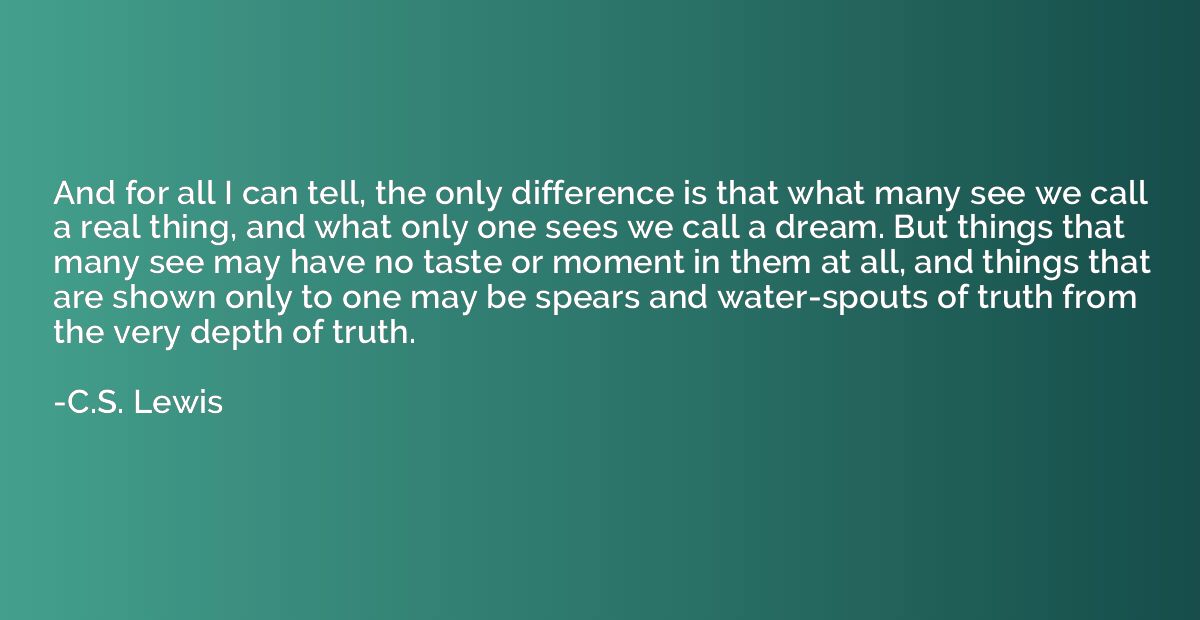Quote by C.S. Lewis
And for all I can tell, the only difference is that what many see we call a real thing, and what only one sees we call a dream. But things that many see may have no taste or moment in them at all, and things that are shown only to one may be spears and water-spouts of truth from the very depth of truth.

Summary
This quote suggests that the difference between what is perceived as real and what is deemed a dream is merely a matter of perspective. While something seen by many may be considered real, it may lack significance or substance. Conversely, something witnessed by only one person could hold profound truths that originate from the deepest realms of reality. It encourages us to question the conventional notions of reality, as something that is collectively acknowledged may not necessarily possess true meaning, while individual experiences can be enlightening and carry great depths of truth.
By C.S. Lewis














